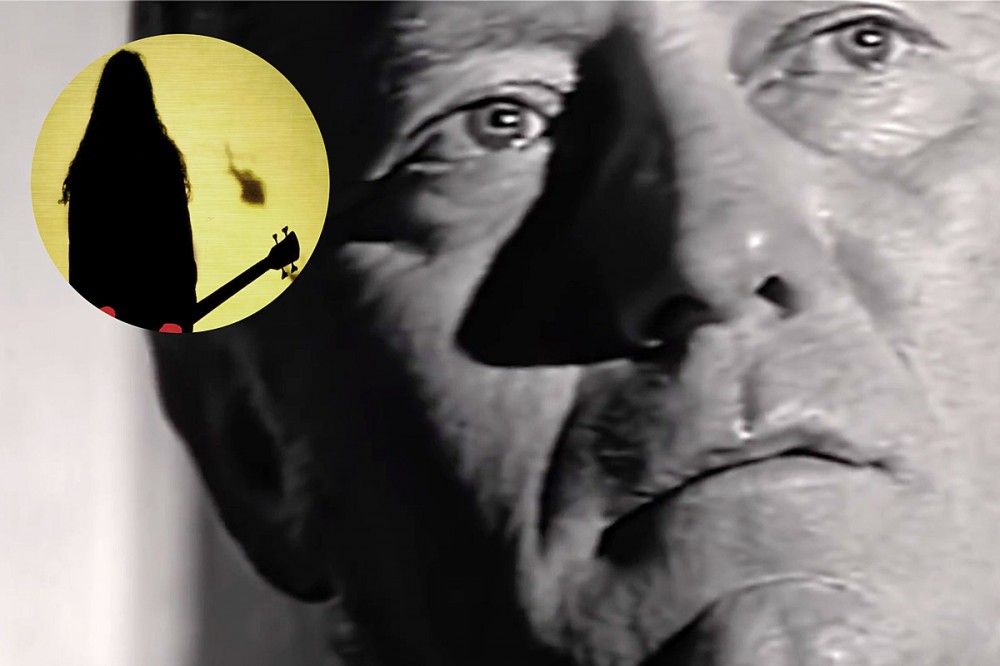
The Tragic Story of a Grunge Masterpiece
Here's the true story of Jerry Cantrell, his father, and one of Alice in Chains' most personal songs, “Rooster."
In 1991, Jerry Cantrell was maturing into a young man and trying to cope with the anger he felt towards his estranged father, Jerry Sr. Jerry Jr. resented the man, but as he grew into the main songwriter for his new band Alice In Chains, he decided to take a different approach to dealing with his broken childhood. Instead of blaming his father, he tried to understand him.
“I started to think about putting myself in his shoes and what he’d been through in his life — multiple tours in ‘Nam, just where he came from, things he had to deal with, and I started asking myself, ‘Would I have done any better? Could I have done any better?’ And I couldn’t say yes,” Cantrell told Gibson.
Overcome with this new empathy, Jerry couldn’t help but start writing. He didn’t know a lot about his father’s experience in the war, so he used his imagination. One fact he did know, however, was his father's nickname in the Army — Rooster. It was first given to him as a kid by his grandfather because of his cocky attitude and how his hair used to stick up. The nickname stuck, and coincidentally, ‘rooster’ was also a common nickname for M-16 machine gunners in Vietnam due to the muzzle flashes looking like a rooster’s tail.
In the song, Jerry paints the picture of his father, stuck in the jungles of Vietnam, just trying to stay alive. The first line sucks you into the general feeling the track.
Ain't found a way to kill me yet.
With just a few more lines, you empathize for Jerry’s father and the intensity of his life as a soldier in Vietnam. He’s stuck in this jungle war, with bullets coming at him from an enemy he can’t see, his friends are dying, he’s got a new wife and a young family he’s thinking of, and the general public in America despises everything he’s there for.
Walkin' tall machine gun man
They spit on me in my homeland
Gloria sent me pictures of my boy
Got my pills 'gainst mosquito death
My Buddy's breathin' his dyin' breath
Oh god, please won't you help me make it through?
Mark Pellington of Pearl Jam fame directed the powerful music video for “Rooster.” Part of the video was Mark interviewing Jerry Sr. about his experience in the war. “It’s a weird experience, it's a sad experience, and I just hope nobody else has to go through it,” Jerry Sr. shared.
“I actually went out of the room and he was interviewing my dad about it,” Jerry Cantrell recalled. “And it was one of the only times he’s talked at length about it. And it brought him to tears.”
The chorus is contradictory, in that it sounds triumphant like a celebration that the enemy can’t kill Jerry’s father, but it also evokes the survivor’s guilt his father must have felt after seeing a lot of his friends die in battle.
Here they come to snuff the rooster, ah yeah
You know he ain't gonna die
Released as the fourth single on Alice in Chains' breakout 1992 album, Dirt, "Rooster" has remained one of the band's most enduring and recognizable songs, not only drawing praise from the rock crowd, but from those in the military as well.
“That song, in particular, means a lot to service members and their families,” Cantrell explained. “I’m glad that that song had the impact that it has. I didn’t have an intent for it, other than it being kind of a pathway for my dad and I to have a better relationship, which worked.”
Jerry got the stamp of approval, but the first time his father heard “Rooster,” he didn’t elaborate on what he thought of the song. Jerry eventually asked for a little more feedback. “I remember asking him if I’d gotten close to the vibe of being there, or mindset. And he was like, ‘You got too close.’”
Watch the full story of Alice in Chains’ “Rooster” in the video below.